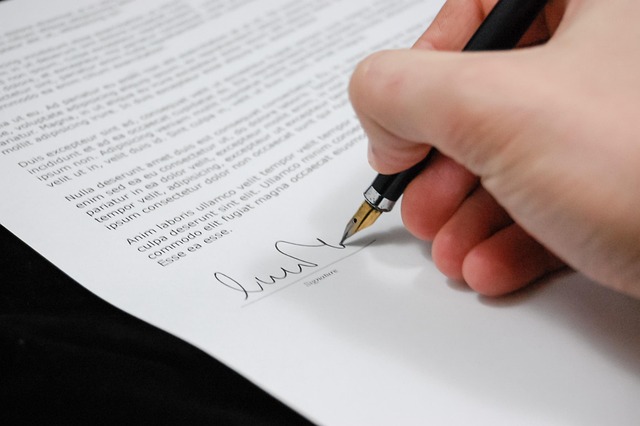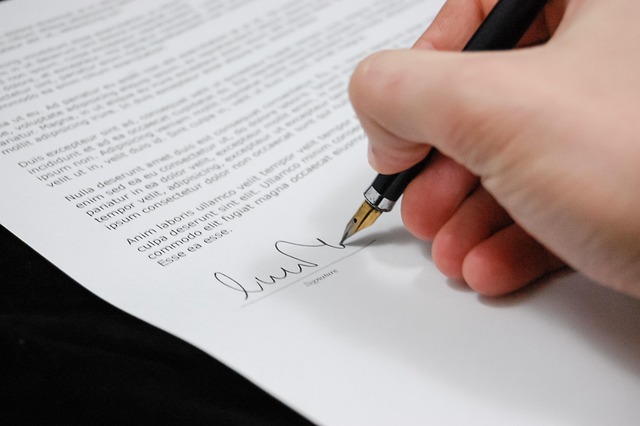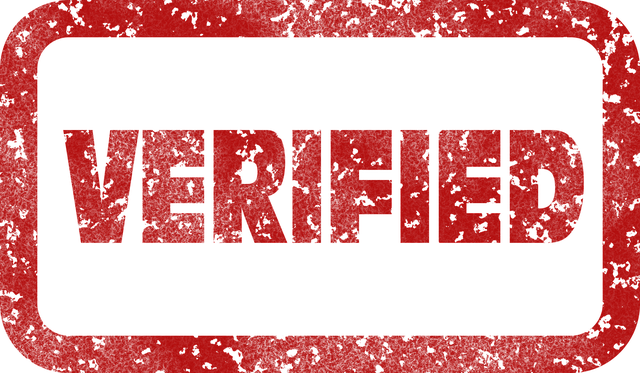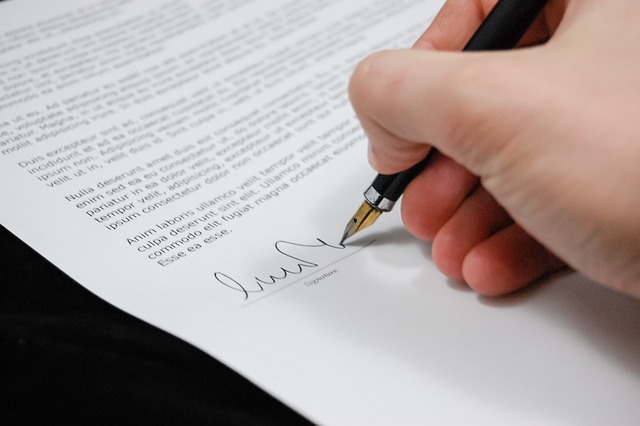Shareholder Agreements require precise UK translation services for multinational companies to navigate legal complexities and ensure compliance across diverse jurisdictions. Professional translators, equipped with corporate law knowledge, accurately convey terms while legal experts verify document integrity, validity, and enforceability in international settings, preventing disputes and preserving agreements' original intent.
In the dynamic landscape of global business, ensuring compliance with shareholder contracts is paramount, especially in the UK. This article delves into the intricacies of navigating translated shareholder agreements within the UK context. We explore the significance of precise legal translation, dissect common challenges, and offer best practices to safeguard integrity. From quality assurance checks to post-translation verification, discover essential steps for reliable document management. Empower yourself with knowledge on effective shareholder agreements translation services tailored for UK business needs.
- Understanding Shareholder Agreements in the UK Context
- The Importance of Accurate Translation for Legal Documents
- Challenges in Translating Shareholder Contracts
- Best Practices for Ensuring Compliance During Translation
- Quality Assurance Checks for Translated Agreements
- Maintaining Legal Integrity: Post-Translation Verification Steps
Understanding Shareholder Agreements in the UK Context

Shareholder agreements are pivotal documents in any company, especially within the UK legal framework. These agreements outline the rights and responsibilities of shareholders, ensuring a structured and fair relationship between them and the corporation. In the dynamic business landscape, understanding the nuances of these contracts is essential, particularly when dealing with international shareholders or contemplating expansion into new markets.
When it comes to navigating the complexities of shareholder agreements in the UK, translation services play a crucial role for multilingual businesses. Accurate UK-based translation ensures that all parties understand their obligations and rights, fostering transparency and trust. Professional translation services specialising in legal documents can help demystify the language, ensuring compliance with UK laws and regulations, thereby avoiding potential pitfalls and disputes down the line.
The Importance of Accurate Translation for Legal Documents

In the realm of international business, where companies often have a global reach and diverse shareholder bases, ensuring compliance with legal documents is paramount. One such critical document is the shareholder agreement, which forms the backbone of ownership relationships within a company. When dealing with cross-border transactions or non-native speakers, accurate translation becomes an indispensable tool to safeguard against potential legal pitfalls.
Shareholder agreements, particularly in the UK, require meticulous handling due to their intricate nature and regulatory requirements. Engaging reputable UK translation services is essential to guarantee that the translated document retains its legal integrity and precision. These services employ language experts well-versed in corporate law to deliver translations that are not just word-for-word but also culturally adapted and legally sound, ensuring compliance with local regulations.
Challenges in Translating Shareholder Contracts

The process of translating shareholder agreements presents unique challenges, especially in a global business environment where companies often operate across borders. One of the primary difficulties lies in capturing the precise legal nuances and terminology specific to each jurisdiction. Shareholder agreements in the UK, for instance, may contain references to laws and regulations that differ from those in other countries, requiring specialized knowledge to ensure accurate representation in the target language.
Additionally, cultural differences play a significant role. What seems straightforward in one language might be expressed in another with subtle variations, potentially leading to misinterpretations. For example, concepts like corporate governance, voting rights, and dispute resolution mechanisms may have different cultural contexts and implications. Therefore, relying on professional UK translation services becomes paramount to avoid ambiguity and legal complications, ensuring that the translated shareholder contracts remain valid and enforceable in their respective jurisdictions.
Best Practices for Ensuring Compliance During Translation

When dealing with translated shareholder agreements, adherence to legal standards is paramount. A meticulous approach is essential to avoid any potential pitfalls or misinterpretations that could impact the validity and enforceability of the document in the UK. One of the best practices for ensuring compliance during translation involves engaging professional services with extensive experience in cross-jurisdictional contracts.
These specialized UK translation services should not only possess expertise in legal terminology but also a deep understanding of corporate law and shareholding structures. Utilizing advanced translation tools and software, along with human linguists, helps guarantee accuracy and consistency. Additionally, a comprehensive quality assurance process that includes peer review and client approval ensures the translated document aligns perfectly with the original, preserving its legal integrity.
Quality Assurance Checks for Translated Agreements

When utilizing UK translation services for shareholder agreements, Quality Assurance (QA) checks are paramount to ensure accuracy and compliance. Beyond simple linguistic fluency, QA processes must verify that the translated document accurately reflects the original agreement in terms of legal implications and structural integrity. This involves a meticulous review by legal experts who are fluent in both the source and target languages. They scrutinize every clause, term, and phrase to confirm not only grammatical correctness but also the preservation of vital legal nuances unique to each jurisdiction.
These QA checks should encompass a comprehensive range of activities, from comparing translated terms with industry standards and relevant legal frameworks to verifying consistency throughout the document. The goal is to identify and rectify any discrepancies or misinterpretations that could impact the enforceability or interpretation of the shareholder agreement in international settings. By implementing robust QA procedures, companies can be confident that their translated shareholder agreements not only meet linguistic standards but also adhere strictly to legal requirements.
Maintaining Legal Integrity: Post-Translation Verification Steps

When utilizing UK translation services for shareholder agreements, ensuring legal integrity post-translation is paramount. While professional translators are adept at conveying meaning accurately from one language to another, it’s crucial to verify that the translated document retains the original agreement’s legal validity and intent. This involves a meticulous review process where legal experts examine the translation against the source document, checking for any discrepancies or potential ambiguities that may impact the contract’s enforceability.
This verification step includes scrutinizing key clauses, definitions, and terms of reference to confirm their accurate representation in the translated version. It’s not just about word-for-word correspondence but ensuring that the legal nuances and implications are preserved across languages. This meticulous approach guarantees that the translated shareholder agreements remain legally sound, protecting all parties involved from potential disputes or misinterpretations down the line.
When translating shareholder agreements in the UK, adhering to legal nuances and cultural contexts is paramount. By employing professional translation services specializing in shareholder agreements, organizations can mitigate risks associated with inaccurate or incomplete translations. Implementing best practices, including thorough quality assurance checks and post-translation verification, ensures that these critical documents maintain their legal integrity. Investing in high-quality translation not only facilitates global expansion but also safeguards the rights and interests of all stakeholders involved.



